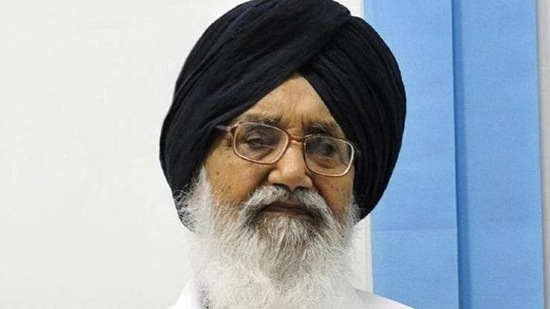Politics was simple but the challenges huge: Parkash Singh Badal on polls 70 years ago
After 11 stints in the assembly and Parliament, and five terms as chief minister, Badal remembers the initial days of the 1951 polls as “chaotic”.
When India was heading for its maiden general elections in 1951, the grand old man of Punjab politics, Parkash Singh Badal, was just 24.

A recent graduate from Forman Christian College, Lahore, Badal had started meeting the senior leadership of the Shiromani Akali Dal (SAD), talking about Sikh identity and state on the linguistic lines.
“The style of politics then was simple, but the challenges were huge, particularly for the Punjabis as exodus of population from west Punjab (now part of Pakistan) had happened after the partition and new political equations were taking shape,” said Badal, now 93, sitting on an armchair in his native village in south Punjab’s Muktsar district.
Nicknamed Pash, Badal had set out of home to become a doctor but later wanted to join government service. But Giani Kartar Singh, a top Akali leader at the time, rejected the idea of Badal becoming a tehsildar (revenue officer). “You will recruit tehsildars,” he told the young man.
After 11 stints in the assembly and Parliament, and five terms as chief minister, Badal remembers the initial days of the 1951 polls as “chaotic”.
“All parties and politicians were trying to consolidate their space,” he said.
A young political operative at the time, Badal used to take senior leaders in his Willys jeep to rallies and events, and even drove buses to political events.
The SAD won four seats in the first general election — all of them in Punjab. “We contested on the Punjabi suba (state) and Sikh identity politics,” said Badal.
He remembered the frenetic build-up to the 1951-52 elections due to the steep logistical challenges and the country’s first experience with universal adult franchise.
“In the first election, ballot papers were used to cast votes, old ghee cans were used a ballot boxes and vote count was written on black boards,” he said.
He recalled that Jawaharlal Nehru, India’s first prime minister, was a big name at the time.






